Week 6 of the college football season was the most college football week yet. You had Pitt kicker Alex Kessman nailing a 58-yard field goal to force overtime against Boston College, then missing a PAT to lose the game. You had Oklahoma beating rival Texas in four overtimes despite blowing a late two-touchdown lead and head coach Lincoln Riley displaying all of his worst, most destructively conservative tendencies. You had unexpected blowouts, actual home-crowd advantages and upset bids galore.
Most of all, you had dissonance down South. Nick Saban's Alabama took part in the most prolific regulation game in SEC history, a 63-48 win over Lane Kiffin's Ole Miss that included 111 points and 1,370 yards. Six other SEC teams scored at least 38 points, and three weeks into the league schedule, six SEC teams rank 53rd or lower (out of 76 teams to have played so far) in total defense. That includes LSU, Florida and Alabama.
WHAT?
Using that as a prompt, let's look at the teams that have played the most out-of-character ball thus far.
Here are some of the offenses and defenses that have overachieved or underachieved the most compared to their preseason SP+ projections. We'll look at what they've done particularly well or poorly, and we'll look at why their fortunes might change moving forward.
(Note, the list of underachieving defenses below doesn't include Alabama because the Crimson Tide haven't underachieved their projections as much as you might think -- they were projected merely 19th in defensive SP+ because of turnover in the secondary, and they've fallen only to 22nd so far. Fear not: You'll read plenty about the Alabama D in Friday's massive Georgia-Bama preview.
Underachieving defenses
Not even including Alabama, maybe the three most surprisingly bad defenses in the country all reside in the SEC.
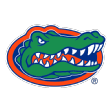
Florida Gators
Week 6 result: Lost to Texas A&M 41-38
Raw statistics: 58th in scoring defense (33.3 points per game), 72nd in total defense (495 yards per game)
SP+ (preseason and present): Third in defensive SP+ in the preseason, 20th after six weeks. As mentioned in Sunday's SP+ release, a team's ratings are still derived heavily from preseason projections, so it's almost impossible for a team projected as high as third to have fallen more than 15-20 spots thus far. If it was possible, the Gators would have done it.
Most damning weakness: Spectacular inefficiency. Florida was seventh in defensive SP+ in 2019, and while the Gators did lose pass-rusher Jonathan Greenard and corner CJ Henderson, most of the two-deep returned, as did defensive coordinator Todd Grantham. Maybe you could predict passing-downs issues if the Gators couldn't sufficiently replace Greenard, but three games into 2020, they have suffered a comprehensive collapse. They are 75th out of 76 teams in success rate allowed -- 74th against the run, 70th against the pass. Big plays are random and volatile, but efficiency is predictive, and Florida's defensive inefficiency has been startling. Texas A&M scored 41 combined points against Vanderbilt and Alabama, then posted 41 on the Gators. The Aggies scored on all but two drives.
Florida just seems a step slow across the board. The Gators are dealing with their fair share of "absent for unspecified reasons" issues on the depth chart, but not more than anyone else. Their biggest issue seems to be that a bunch of players are playing worse than they did last year. That's semi-encouraging in that we know what they're capable of, and they could revert to form at some point. But they haven't yet.
Ray of sunshine: At least they're not getting gashed deep, too. In 2019, the Gators ranked 21st in my marginal explosiveness measure -- my field position-adjusted measure of the magnitude of one's successful plays -- and they're currently 21st this year, too. For all of A&M's intermediate success, the Aggies had only two gains of 25-plus yards. None of this matters if you're giving up constant 15-yard passes, as Florida did in College Station, but it's at least a sign that the problems could be worse.

LSU Tigers
Week 6 result: Lost to Missouri 45-41
Raw statistics: 51st in scoring defense (32 points per game), 71st in total defense (495 yards per game)
SP+ (preseason and present): 25th in defensive SP+ in the preseason, 37th after six weeks
Most damning weakness: Passing downs. In Saturday's loss, LSU gave up a 69-yard pass on second-and-12, a 26-yarder on third-and-6, a 21-yarder on second-and-8 and a 17-yarder on second-and-10. The Tigers also gave up big plays on regular downs, to be sure, but LSU's symptoms have been two-fold: They can't knock teams off-schedule, and when they do, they get obliterated. Even by Missouri's second-string receivers.
On blitz downs (second-and-super-long, third-and-5 or more), the Tigers have given up gains of 20-plus yards 23% of the time (74th), and even worse, these are pretty dang easy big plays. While Mizzou's first touchdown of the game came on a well-executed flea-flicker, Connor Bazelak also completed a 69-yard pass to uncovered freshman Chance Luper and a 41-yard touchdown to an impossibly wide-open Micah Wilson.
Mizzou coach Eliah Drinkwitz's offense is based on misdirection and creating confusion, so give a little due credit to those Tigers. But communication for new LSU coordinator Bo Pelini's defense is nonexistent. Despite the return of corner Derek Stingley Jr., the breakdowns in their third game were as bad as the breakdowns in their first. LSU has managed to slow down only Vanderbilt so far, which doesn't really count.
Ray of sunshine: The pass rush is solid. Though he hasn't blitzed much, Pelini has found a way to generate some pressure -- the Tigers are 16th in pressure rate and 30th in sack rate. If the secondary irons out the "I thought you had him," "No, I thought you had him" issues, then they can at least get off the field better on passing downs.
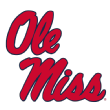
Ole Miss Rebels
Week 6 result: Lost to Alabama 63-48
Raw statistics: 76th in scoring defense (51.7 points per game), 76th in total defense (641 yards per game)
SP+ (preseason and present): 41st in defensive SP+ in the preseason, 65th after six weeks
Most damning weakness: Everything. In terms of success rate, Ole Miss is the worst FBS defense against the run, second worst against the pass, worst on standard downs and second worst on passing downs. Florida's Kyle Trask and Alabama's Mac Jones combined to complete 58 of 74 passes for 833 yards, eight touchdowns, no interceptions and only two sacks. Defensive co-coordinators DJ Durkin and Chris Partridge are sending the house often (12th in blitzes per dropback) and getting almost nothing from it (59th in sack rate, 67th in pressure rate). They can't force teams off-schedule and can't get off the field when they do.
Ray of sunshine: Florida and Alabama are now off the schedule. Arkansas, Auburn and Vanderbilt, three of the least effective offenses in the league thus far, are next. There's nothing saying Ole Miss can generate much success against them, but the degree of difficulty at least goes down a bit.
Overachieving defenses
It felt as if almost no one actually had a good week on defense in Week 6, but let's talk about a couple of Big 12 defenses that had a rest week and have, in a role reversal with the SEC, showed up big-time thus far. We'll also look at Conference USA's most intriguing team.
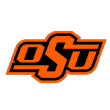
Oklahoma State Cowboys
Week 6 result: Bye week
Raw statistics: Third in scoring defense (9 points per game), ninth in total defense (274 yards per game)
SP+ (preseason and present): 37th in defensive SP+ in the preseason, 24th after six weeks
Most encouraging strength: Successful aggression. OSU defensive coordinator Jim Knowles has for a while subscribed to an ethos dear to my heart: efficiency over everything. Attack, play physically and risk big plays, penalties and more big plays in the name of taking the fight to your opponent.
For much of his OSU tenure, this has resulted in, well, big plays, penalties and more big plays. But against teams ranked 61st, 69th and 119th in offensive SP+, this year's seasoned Pokes defense has dominated. It is fourth in success rate allowed, and 45% of opponents' possessions have been three-and-outs thus far (third in FBS). The Pokes are 12th in marginal explosiveness as well.
Red flag: The good offenses are on the way. Admittedly, the Big 12 is not the offensive juggernaut it has been for most of the past 15 years. Oklahoma (fourth) and Texas (eighth) have the only top-25 offenses, per SP+, and OSU's is the only other one ranked higher than 38th. Still, as basically the only remaining College Football Playoff candidate in the Big 12, the Pokes have to maneuver past the Sooners, Longhorns and a quickly rising Iowa State team. Oh yeah, and while OSU is 12th in overall marginal explosiveness, it's 60th on passing downs. Good offenses might make the Pokes look like LSU.

West Virginia Mountaineers
Week 6 result: Bye week
Raw statistics: 13th in scoring defense (19.3 points per game), eighth in total defense (268 yards per game)
SP+ (preseason and present): 65th in defensive SP+ in the preseason, 51st after six weeks
Most encouraging strength: A blitz-free pass rush. Little was expected of a WVU defense that ranked 73rd in defensive SP+ last year and fired defensive coordinator Vic Koenning in June. But like OSU, the Mountaineers have combined efficiency and big-play prevention in an encouraging way, even if the competition (Eastern Kentucky, Baylor and an OSU team with a freshman QB) wasn't amazing.
The biggest standout trait to date is the combination of these three rankings: WVU is 69th in blitzes per dropback, 13th in sack rate and fourth in pressure rate. With tackles such as Darius Stills and Dante Stills, and edge rushers VanDarius Cowan, Jared Bartlett and Jalen Thornton, the Mountaineers don't have to send more than four pass-rushers to successfully harass the QB. From a coverage standpoint, that offers a wonderful luxury.
Red flag: Potential issues in run defense. This defense is quite undersized, and though the run-defense numbers have been solid, they're not quite as good as the pass defense: 19th in rushing success rate allowed, 42nd in rushing marginal explosiveness. The Mountaineers finish the year against Texas, TCU, Oklahoma and Iowa State, maybe the four teams most likely to take advantage of that.
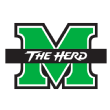
Marshall Thundering Herd
Week 6 result: Beat Western Kentucky 38-14
Raw statistics: First in scoring defense (7 points per game), 10th in total defense (275 yards per game)
SP+ (preseason and present): 60th in defensive SP+ in the preseason, 31st after six weeks
Most encouraging strength: Doc Holliday's Thundering Herd have twice finished in the defensive SP+ top 25 in the past five years but fell to 59th last season. Despite attempting minimal disruption overall -- 65th in run stuff rate, 73rd in blitzes per dropback -- the Herd are swarming like a top-25 D once again. Linebacker Tavante Beckett is everywhere, West Virginia transfer Derrek Pitts is a presence in the secondary, and Marshall ranks both 17th in success rate and second in marginal explosiveness allowed.
The Herd force you to dink and dunk, wait for you to make a mistake, and pounce. And they're 3-0 having already beaten the two most highly-ranked teams on the schedule in Appalachian State and a WKU team that has admittedly disappointed. Hurdles remain, but the defense has turned Marshall into the Conference USA front-runner.
Red flag: The lack of disruption could eventually backfire. The C-USA East is not loaded with efficient offenses at the moment, but if an opponent is patient and mistake-free enough to take a few yards at a time and control the ball, it might put the Herd offense under more pressure than it can handle to keep up on the scoreboard.
Underachieving offenses
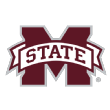
Mississippi State Bulldogs
Week 6 result: Lost to Kentucky 24-2
Raw statistics: 66th in scoring offense (20 points per game), 25th in total offense (442 yards per game)
SP+ (preseason and present): 26th in offensive SP+ in the preseason, 41st after six weeks
Most damning weakness: The big-play spigot has been shut off. It was only two weeks ago that K.J. Costello was throwing for approximately 1,700 yards (OK, 623) against LSU's dysfunctional defense. That output included seven completions of at least 30 yards and eight more of at least 20.
Since then: a 34-yard completion against Arkansas, a 23-yarder against Kentucky ... and that's it. Costello has averaged a paltry 6.9 yards per completion since then, which, combined with seven interceptions, has ground the Mike Leach Air Raid to a total halt. Both Arkansas and Kentucky played the type of bend-don't-break defense Leach offenses often see, but Leach's new charges have not even slightly learned how to handle it.
Ray of sunshine: This is nothing Leach hasn't faced before. Ignoring Leach's gross quotes about needing a "purge" of "malcontents," the bottom line is that, like a seasoned old triple-option coach, Leach has seen every defense known to man by this point. If or when his passers and receivers get closer to the same page, the offense should at least work its way back to average. "Average" isn't what we were expecting two weeks ago, but it's the most realistic ambition at the moment.
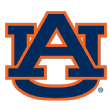
Auburn Tigers
Week 6 result: Beat Arkansas 30-28
Raw statistics: 62nd in scoring offense (21.7 points per game), 67th in total offense (329 yards per game)
SP+ (preseason and present): Seventh in offensive SP+ in the preseason, 33rd after six weeks
Most damning weakness: They still can't pass. Granted, the Tigers get bonus points for having faced Georgia already -- they have averaged a far more tolerable 29.5 points and 385 yards against mortal defenses. Still, those aren't great numbers, and without freshman running back Tank Bigsby producing a career-high 146 yards against Arkansas, they would be 1-2 because the passing game once again stunk.
I named quarterback Bo Nix the second-most important player of the 2020 season because of the impact he could have if he were to enjoy a second-year leap behind center. Thus far, he has not. He has completed 57% of his passes at just 11.1 yards per completion, his passer rating is a mere 121, and he's taking far too many sacks in obvious pass situations. Even with a resilient run game, Auburn ranks just 49th in success rate and 66th in marginal explosiveness.
Ray of sunshine: The less organized defenses are on the way. Georgia is Georgia, and both Kentucky and Arkansas have proven organized and well-coached this year. But the next three opponents on the schedule are South Carolina, Ole Miss and LSU. South Carolina is 70th in success rate allowed (despite having played Vanderbilt!), and you already read about Ole Miss and LSU above. There might be playmaking opportunities on the horizon.
Overachieving offenses

Ole Miss
Raw statistics: 11th in scoring offense (41.7 points per game), second in total offense (573 yards per game)
SP+ (preseason and present): 38th in offensive SP+ in the preseason, 26th after six weeks
Most encouraging strength: Matt Corral is perfect for Lane Kiffin (and vice versa). As horrifying as Ole Miss' defense has been, the Rebels' opponent in a given week has been nearly as unsuccessful. Despite having already played Florida and Alabama, Ole Miss is producing UCF-level stats, which makes at least a little sense considering offensive coordinator Jeff Lebby indeed came to Oxford from UCF. Combining the Knights' tempo and spacing with some of Kiffin's well-honed passing concepts and bold playcalling has produced otherworldly results so far.
Former blue-chipper Corral has produced a passer rating over 200 in each game and is combining a 76% completion rate with an average of over 16 yards per completion. And even with a short, 10-game season, he has two receivers on pace for more than 1,000 yards: veteran receiver Elijah Moore and tight end/matchup nightmare Kenny Yeboah.
Red flag: The run game isn't great. The Rebels' run rates are high, but they're only 45th in rushing success rate and 20th in standard downs success rate. They're relying on the pass to bail them out, and it has, but if opponents start to get a read on that, or if the hits on Corral start adding up (they're 56th in sack rate), that could be a problem.
On the other hand, Ole Miss ran the ball better than it had all year against Alabama -- Snoop Conner and Jerrion Ealy combined for 40 carries and 248 yards. Maybe that progress will continue.

Coastal Carolina Chanticleers
Week 6 result: Bye week
Raw statistics: Fourth in scoring offense (44.3 points per game), 26th in total offense (441 yards per game)
SP+ (preseason and present): 86th in offensive SP+ in the preseason, 54th after six weeks
Most encouraging strength: An option(ish) team that can pass. A shoutout to Chanticleers. Jamey Chadwell's squad has patented a funky, run-heavy offense in recent years, and they've supplemented it with some serious passing chops in 2020. Freshman quarterback Grayson McCall has completed 67% of his passes at 17.3 yards per completion, and he has thrown only one interception in his first 63 passes of the season. The run game keeps the Chants on schedule, then McCall passes over the top of the defense. Coastal boasts maybe the slowest tempo in FBS but is averaging 3.9 points per drive, third in FBS. The defense (31st in points per drive allowed) might know what it's doing, too.
Red flag: What happens when the deep balls don't connect? The run game has produced next to no explosiveness, and when the conference's better defenses -- Appalachian State, Louisiana, Georgia Southern, Troy -- pop up on the schedule, Coastal might not be able to rely on the deep shots as much. That might make McCall look a lot more like a freshman. The real tests begin Wednesday, when the Chants travel to face Louisiana. Can't wait for that one.
